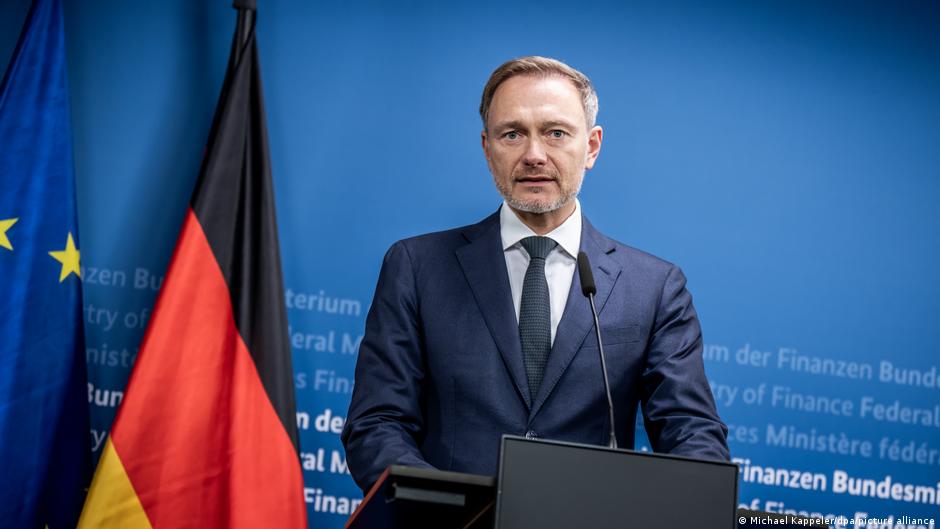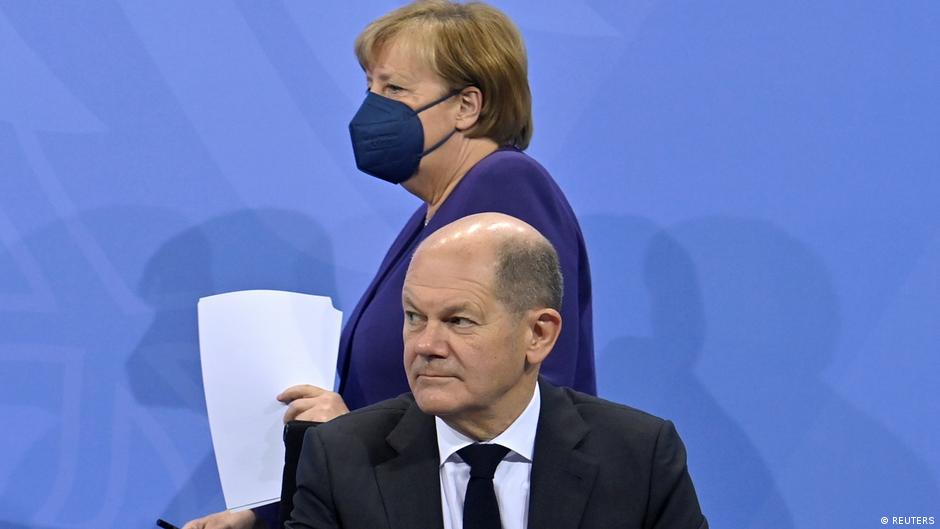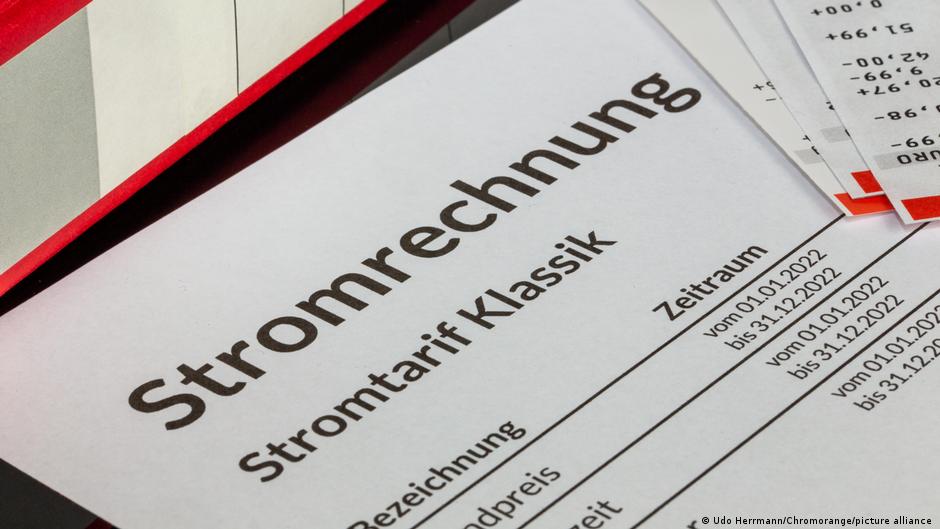What the German government decides will have international repercussions. Either declare an emergency and borrow more money, or cut spending until something (probably) breaks?
The rules are clear: The German state must make ends meet with the money it takes in. That’s what is written in the constitution. It’s called the Schuldenbremse, or debt brake. Only in exceptional circumstances can the debt brake be lifted and the government take on new debt. From 2014 to 2019, the federal government was able to comply with these conditions as the budget was always balanced.
But then came the coronavirus pandemic and Russia’s invasion of Ukraine. The Bundestag suspended the debt brake several times, and the government has been able to borrow billions. Finance Minister Christian Lindner’s goal was to put an end to this trend and consolidate the budget. Now he feels compelled to suspend the debt brake retroactively for 2023 as well.
A €60-billion shortfall, at least
Since the Federal Constitutional Court declared the financing of the Climate and Transformation Fund (KTF) to be unconstitutional, the government’s current budget planning has become inapplicable. The €60 billion ($66 billion) that the coalition of the center-left Social Democrats (SPD), Greens, and neoliberal Free Democrats (FDP) paid into this special fund after taking office in 2021 had been left over from the coronavirus pandemic and had not been used.

A worried look: Federal Finance Minister Christian Lindner (FDP)
The judges ruled that setting aside emergency loans for the future and spending them in ways not approved by the Bundestag is not permissible. The decision caught the coalition off guard, and now there has been widespread confusion about how to react to it. Especially since the KTF is not the only special fund. The German armed forces have a special fund of €100 billion, for example, though since this backed by the constitution it is presumably unaffected.
The situation is different with the Economic Stabilization Fund (WSF), a crisis fund of up to €200 billion primarily designed to finance energy price controls. It was set up in 2022, and a large part of the money was earmarked for 2023 and 2024.
As a precautionary measure, Finance Minister and FDP leader Lindner has now imposed a budget freeze. He has said that before further discussions on the 2024 budget, he wants to secure the electricity and gas price controls that have already been paid out with a supplementary budget.
But what happens then? The SPD, Greens, and FDP appear stumped. One reason for this is that the three parties have fundamentally different positions. The coalition is made up of two more statist parties and one neoliberal party. Since the very beginning of their collaboration, the FDP has insisted on balancing the budget and restoring the debt brake as quickly as possible. On the other hand, the SPD and Greens refuse to budge on their climate and social policy goals, which cost a lot of money.

When the coronavirus pandemic broke out, Angela Merkel (CDU) was still German chancellor
Climate action, social issues, debt brake
Do we now have to forego spending billions on the development of a CO2-neutral economy to protect the climate? The Greens would not accept this. On the other hand, the SPD would protest if massive cuts to social spending, unemployment benefits, or pensions were to come into play. The FDP, on the other hand, would oppose tax increases for the rich or a renewed suspension of the debt brake.
Blindsided: Federal Chancellor Olaf Scholz (center) and his ministers Robert Habeck (left) and Christian Lindner after the ruling of the Federal Constitutional Court
The debt brake is basically a thorn in the side of many in the SPD and Greens. SPD leader Saskia Esken wants the debt brake to be eased, while Economy Minister Robert Habeck, of the Green Party, said recently at his party conference in Karlsruhe: “With the debt brake as it is, we have willingly tied our hands behind our backs and are now stepping into a boxing match.”
Now, in view of Germany’s miserable economic data, support is also coming from some economists: Can Germany keep up globally with such a rigid austerity policy?
Miserable growth prospects
Is Germany once again the “sick man of Europe”? Anyone looking at the facts will have a hard time ignoring such a conclusion. While the economy is growing in many other countries around the world, Germany has not been able to get back on its feet and has even slipped into recession in 2023. Since the coronavirus pandemic, the German economy has recorded the lowest economic growth in the eurozone, with no rapid turnaround in sight.
The country is struggling with high energy costs and a shortage of skilled workers. The railroads, roads, and bridges are as dilapidated as the public buildings, especially schools and universities. There remains a lot to be desired in terms of digital infrastructure, and the transition to renewable energies and electrification is progressing far too slowly.

Electricity costs have risen sharply since 2022
Other countries have been taking on debt to bolster and modernize their economies. The best example is the USA. With the “Inflation Reduction Act,” President Joe Biden’s government launched an investment program worth almost $740 billion. In addition to measures to combat climate change and restructuring the US economy around renewable energies, the program also includes comprehensive new tax regulations.
What happens in Germany is also of international interest. If Europe’s largest economy reduces its investments and spending, it will be felt first by its European neighbors and then by the rest of the world. The International Monetary Fund (IMF) and the Organization for Economic Cooperation and Development (OECD) are already issuing warnings about the effects of Germany’s budget crisis.
Reforming the debt brake
“To ensure growth, Germany must invest in its infrastructure, the green restructuring of the economy, and in the skills of its population,” said the head of the IMF, Kristalina Georgiewa, in a recent newspaper interview. “And we are not talking here about trivial investments.” The OECD has come out firmly in favor of reforming the debt brake, citing not only the massive need for investment and the poor economic data, but also the ongoing war in Ukraine, the shift in defense policy, and the impact that geopolitical tensions are having on supply chains and markets for German companies.
Other economists have also cautioned that the debt brake should not stand in the way of investing in Germany’s future prospects. And yet still, a reform of the rule is only possible with two-thirds majority support in parliament, which currently does not exist.
The conservative opposition parties CDU and CSU have ruled out any changes. They have argued that the debt brake is essential for a budget that is fair to all generations. CDU leader Friedrich Merz has instead proposed cutting social spending and postponing the Green Party’s heating bill, which aims to accelerate the phase-out of fossil fuels. The FDP shares these policy positions. However, the CDU/CSU and FDP do not have a majority in parliament.
December 1 was supposed to be the day that the 2024 budget passed the Bundestag. Now, the parliament will likely spend the budgeting week debating and arguing with the government about how Germany ought to proceed.
While you’re here: Every Tuesday, DW editors round up what is happening in German politics and society. You can sign up here for the weekly email newsletter Berlin Briefing.
Author: Sabine Kinkartz
News Related-
Google Pixel 8 Pro Review: Is this the best Android phone of 2023?
-
Namwater Dam Bulletin on Monday 27 November 2023
-
Dr Yunus appointed chair of Moscow Financial University's international advisory board
-
Victory over Nigeria puts Uganda on the brink
-
BoG holds policy rate at 30%, tightens liquidity measures
-
When sea levels rise, so does your rent
-
American International School CEO honoured as ‘Icon of Inspiration and Impact’
-
Sierra Leone prison breaks co-ordinated - minister
-
Address the rise of single parenthood
-
Hyundai Chief Picked as Auto Industry Leader of the Year
-
Unmarried People Under 35 Outnumber Married Ones
-
European interior ministers in Hungary to discuss migration
-
Japan on the watch for unlicensed taxis around Narita airport amid foreign tourism spike
-
ECOWAS to send high-powered delegation on solidarity visit to Sierra Leone
